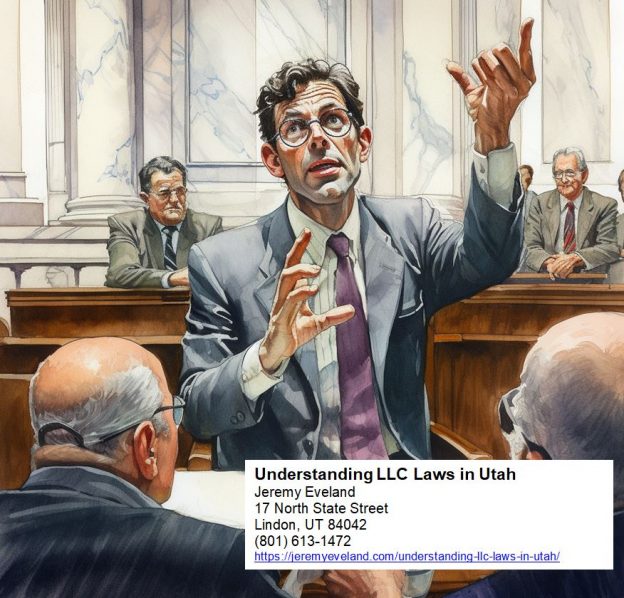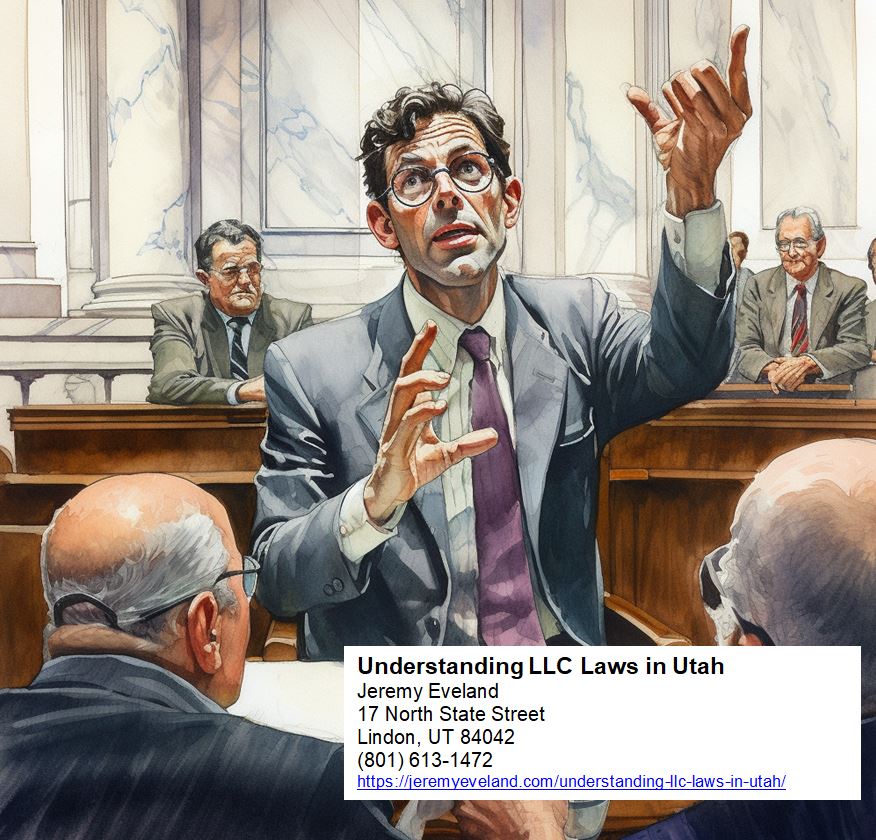Are you considering filing for divorce? It’s a difficult decision to make, but sometimes it’s the best choice for both parties involved. In this article, we will provide you with important information and guidance to address your common legal concerns. We want to reassure you that you’re not alone in this process, and our experienced attorney is here to provide the assistance you need. From understanding the steps involved in filing for divorce to navigating the emotional journey, we will be your trusted guide throughout this challenging time. Remember, taking the next step is crucial, so don’t hesitate to reach out and seek the help you deserve. Let’s begin this journey together.

Understanding Divorce
Divorce is the legal process of ending a marriage between two individuals. It involves resolving issues such as child custody, child support, spousal support, division of assets, and more. While divorce can be a difficult and emotional journey, it is important to understand the different aspects and legal requirements involved.
What is divorce?
Divorce is the legal termination of a marriage, dissolving the bonds between spouses. It allows both individuals to go their separate ways and make a fresh start in their lives.
Types of divorce
There are different types of divorce that can be pursued depending on the specific situation. The most common types include:
-
Contested divorce: This type of divorce occurs when spouses cannot agree on important issues and require court intervention to settle disputes.
-
Uncontested divorce: An uncontested divorce is when both parties mutually agree on all the terms of the divorce, such as property division, child custody, and financial arrangements. This avoids the need for court involvement and usually leads to a quicker and more amicable resolution.
-
No-fault divorce: In a no-fault divorce, neither spouse is required to prove wrongdoing or provide a specific reason for ending the marriage. It is based on the grounds of irreconcilable differences or an irretrievable breakdown of the marriage.
Legal requirements for divorce
To file for divorce, certain legal requirements must be met. These requirements may vary depending on the jurisdiction, but generally include:
-
Residency: Many jurisdictions require that either you or your spouse be a resident of the state or country where you are filing for divorce.
-
Grounds for divorce: In some jurisdictions, there may be specific grounds for divorce, such as adultery, cruelty, or abandonment. However, many jurisdictions now allow for no-fault divorce, where the reason for the divorce is irretrievable breakdown of the marriage.
-
Waiting period: Some jurisdictions may have a waiting period between filing for divorce and the final judgment to allow for reconciliation or reflection.
Deciding to File for Divorce
The decision to file for divorce is a deeply personal and complex one. It is essential to carefully consider your reasons and explore alternative options before taking this step.
Reasons for considering divorce
There are numerous reasons why individuals may consider filing for divorce. Some common reasons include:
-
Irreconcilable differences: Over time, couples may find that their values, goals, or lifestyles have diverged, making it challenging to maintain a healthy and fulfilling relationship.
-
Infidelity: Trust is a crucial foundation in any marriage, and if it is broken by infidelity, it can be difficult to rebuild the relationship.
-
Abuse or domestic violence: If you or your children are experiencing any form of abuse or domestic violence, it is important to prioritize your safety and well-being.
-
Financial issues: Ongoing financial struggles, disagreements about money management, or irresponsible spending can place significant strain on a marriage.
Remember, these are just a few examples, and each situation is unique. It is crucial to reflect on your own personal circumstances and seek professional guidance if needed.
Exploring alternatives to divorce
Before pursuing divorce, it is important to explore alternative options that may help resolve conflicts and save the marriage. Some alternatives include:
-
Marriage counseling: Seeking the guidance of a trained professional can provide a safe space for couples to address their issues, improve communication, and develop strategies to strengthen the relationship.
-
Separation: Temporary separation allows couples to take some time apart to reflect on their relationship and decide if divorce is the best option.
-
Collaborative divorce: Collaborative divorce is an alternative dispute resolution method where both parties work together, with the support of their respective attorneys, to reach a mutually acceptable settlement without going to court.
Weighing the pros and cons
Before making a final decision, it is important to carefully weigh the pros and cons of filing for divorce. Consider the possible benefits, such as the opportunity for personal growth, freedom to pursue your own happiness, and a chance to provide a healthier environment for your children if they are involved.
However, it is also essential to acknowledge the potential challenges, such as emotional turmoil, financial implications, and the impact on children, if applicable. Seeking guidance from a divorce attorney can help you navigate these considerations and make an informed decision.
Hiring an Attorney
When facing divorce, one of the most critical steps is hiring a competent and experienced divorce attorney to guide you through the legal process. Having proper legal representation ensures that your rights and best interests are protected.
The importance of legal representation
Navigating the legal complexities of divorce can be overwhelming, especially if you are unfamiliar with family law. A divorce attorney specializes in divorce cases and can provide invaluable support and guidance throughout the entire process.
An attorney can:
- Explain the legal requirements and procedures specific to your jurisdiction.
- Help you understand your rights and entitlements during property division, child custody, and support negotiations.
- Advocate on your behalf to ensure a fair settlement and protect your interests.
- Prepare and file the necessary paperwork accurately and on time.
Finding the right divorce attorney
Finding the right divorce attorney is crucial to the success of your case. Here are some tips to help you find a suitable attorney:
-
Seek recommendations: Ask friends, family, or trusted professionals for recommendations. Personal referrals often provide valuable insights and can help you find an attorney with a good track record.
-
Research online: Read reviews and testimonials, visit attorney websites, and look for experience and expertise in family law matters.
-
Schedule consultations: Meet with potential attorneys for an initial consultation to discuss your case and evaluate their qualifications, communication style, and approach to divorce cases.
Initial consultation with an attorney
Once you have shortlisted a few divorce attorneys, it is important to schedule initial consultations to make an informed decision. During the consultation, consider the following:
-
Experience: Inquire about the attorney’s experience in handling divorce cases, especially those similar to yours. Ensure they are well-versed in the specific laws and regulations of your jurisdiction.
-
Communication: Evaluate the attorney’s communication style. Clear and effective communication is essential throughout the process, and you should feel comfortable discussing personal matters with the attorney.
-
Fees and billing: Discuss the attorney’s fee structure, including hourly rates, retainers, and payment schedules. Ensure you have a clear understanding of the costs involved and any potential additional expenses.
Remember, selecting the right attorney is a crucial decision, so take your time to find someone you trust and feel comfortable working with.
Understanding the Divorce Process
Once you have decided to proceed with divorce and hired an attorney, it is important to understand the various stages of the divorce process. While the specifics may vary based on jurisdiction and individual circumstances, the following sections provide a general overview.
Petition for divorce
The first step in the divorce process is filing a petition for divorce with the appropriate court. The petition outlines the grounds for divorce and the specific relief sought, such as child custody, visitation, spousal support, and property division. Your attorney will prepare and file this document on your behalf.
Serving the divorce papers
After filing the petition, your spouse must be formally served with the divorce papers. This involves delivering the documents to your spouse in compliance with the legal requirements of your jurisdiction. Once served, your spouse will have a specific timeframe to respond.
Response to the divorce petition
After being served with the divorce papers, your spouse has the opportunity to respond. In their response, they may agree or disagree with the terms stated in the petition. If your spouse fails to respond within the designated timeframe, you may be able to proceed with the divorce by default.
Discovery and disclosure
During this stage, both parties gather relevant information and disclose their financial records, assets, debts, and other relevant documents. This process, known as discovery, aims to ensure transparency and prevent hidden assets or unequal distribution of property.
Negotiations and settlements
The majority of divorces are resolved through negotiation and settlement rather than going to trial. Both parties, along with their attorneys, engage in discussions to reach mutually acceptable agreements regarding property division, child custody, visitation, support, and other relevant issues.
Trial and final judgment
If negotiation and settlement fail, the case may proceed to trial. During the trial, each party presents their arguments, evidence, and witnesses to support their position. The judge will then make a final decision on unresolved matters, and a divorce decree or final judgment will be issued.

Child Custody and Support
When children are involved in a divorce, determining child custody, support, and visitation arrangements becomes a crucial aspect of the process. The goal is to ensure the best interests of the child are prioritized.
Determining child custody
Child custody refers to the legal and physical care of a child following divorce or separation. Different types of custody arrangements exist, including:
-
Sole custody: When one parent has full physical and legal custody of the child.
-
Joint custody: Both parents share physical and legal custody of the child, allowing for a more equal distribution of parenting responsibilities.
The court considers various factors, such as the child’s age, relationship with each parent, stability of each household, and the child’s preferences, when making custody determinations.
Child support obligations
Child support is a legal obligation to financially support the children after divorce. The amount of child support is typically determined based on the income of both parents and the child’s needs, including education, healthcare, and living expenses.
Each jurisdiction has specific guidelines and formulas to calculate child support. It is important to consult with your attorney to understand the applicable laws and ensure a fair child support arrangement is reached.
Visitation rights and parenting plans
Visitation rights or parenting time allows the noncustodial parent to spend time with the child. Parenting plans outline the schedule and logistics of visitation, including holidays, vacations, and special occasions.
Both parents are generally encouraged to work together to create a parenting plan that promotes the child’s well-being and maintains a healthy parent-child relationship. If amicable agreement is not possible, the court may intervene and establish a parenting plan based on the best interests of the child.
Division of Assets and Debts
The division of assets and debts is an important aspect of the divorce process. It involves determining how property, investments, and debts accumulated during the marriage will be divided between the spouses.
Marital property vs. separate property
Marital property typically refers to assets and debts acquired by either spouse during the marriage. Separate property, on the other hand, includes assets or debts acquired before the marriage, inherited assets, or gifts received individually.
Determining what is considered marital or separate property can vary by jurisdiction. It is important to discuss with your attorney the specific laws and regulations applicable in your situation.
Equitable distribution of assets
Jurisdictions typically follow either equitable distribution or community property principles when dividing marital assets. Equitable distribution aims to divide assets fairly, considering factors such as each spouse’s financial contributions, non-monetary contributions, and future earning potential.
The specific division may not necessarily be equal, but rather what the court deems fair given the circumstances. Community property states, on the other hand, generally divide marital assets equally between spouses.
Handling debts and financial obligations
Divorce also involves addressing debts and financial obligations accumulated during the marriage. Debts can include mortgages, loans, credit card debt, and other financial liabilities.
Consult with your attorney to develop a strategy for handling debts and ensure a fair distribution of financial obligations. It is important to address these matters to avoid any potential financial burdens or disputes in the future.
Spousal Support
Spousal support, also known as alimony, is a legal obligation that may arise in certain divorce cases. It is intended to provide financial support to a spouse who may be at a disadvantage due to factors such as income disparity, age, health concerns, or the role they played during the marriage.
Understanding alimony
Alimony is typically determined based on factors such as the length of the marriage, the recipient’s financial needs, the paying spouse’s ability to pay, and other relevant circumstances. The purpose is to help level the playing field and support the spouse in maintaining a similar standard of living post-divorce.
Factors considered in spousal support
When determining the amount and duration of spousal support, the court may consider various factors, including:
-
Length of the marriage: Longer marriages may warrant longer and potentially permanent support.
-
Income and earning capacity: The court considers each spouse’s income, ability to earn, and potential future earning capacity.
-
Standard of living: The court may aim to maintain a similar standard of living for the spouse receiving support.
Types of spousal support
Spousal support can take various forms, depending on the needs and circumstances of the parties involved. The main types include:
-
Temporary support: This type of support is awarded during the divorce process and is intended to ensure the financial needs of the recipient are met until a final settlement is reached.
-
Rehabilitative support: Rehabilitative support is awarded for a specific period of time to allow the recipient to acquire education or job training to become self-supporting.
-
Permanent support: In certain cases, the court may award permanent support when a spouse is unable to become self-supporting due to age, health concerns, or other factors.
The specifics of spousal support will vary depending on the jurisdiction and the unique circumstances of each case.
Mediation and Collaborative Divorce
Mediation and collaborative divorce are alternative dispute resolution methods that offer couples a more cooperative and amicable approach to divorce.
Alternative dispute resolution methods
-
Mediation: Mediation involves the assistance of a neutral third-party mediator who facilitates discussions between spouses. The mediator helps them identify issues, explore potential solutions, and reach mutually agreeable resolutions. Mediation is often less adversarial, less time-consuming, and less costly than traditional litigation.
-
Collaborative divorce: Collaborative divorce involves each spouse hiring their own collaborative attorney and committing to work together to reach a settlement without going to court. This process aims to prioritize open communication, respect, and creative problem-solving.
Benefits of mediation
Mediation and collaborative divorce offer several benefits, including:
-
Greater control: You and your spouse have more control over decision-making and can tailor agreements to your specific needs and circumstances.
-
Less contentious: Mediation and collaborative divorce typically foster a more cooperative atmosphere, allowing for better communication and conflict resolution.
-
Confidential and private: Unlike court proceedings, mediation and collaborative divorce are confidential, providing a more private and discreet resolution.
-
Cost-effective: Mediation and collaborative divorce tend to be more cost-effective compared to traditional litigation, as they require fewer court appearances and legal fees.
Working with a divorce mediator
Working with a divorce mediator can help facilitate productive discussions and ensure both parties are heard and involved in the decision-making process. The mediator does not represent either spouse but works as a neutral facilitator to guide the discussions.
During mediation, it is essential to approach the process with an open mind, be willing to compromise, and focus on finding solutions that benefit both parties. The mediator can assist in identifying common ground and exploring creative solutions that meet the needs and interests of both spouses.

Protecting Your Rights
Throughout the divorce process, it is important to protect your rights and ensure that your voice is heard. Here are some important considerations:
Importance of documentation
Maintaining thorough and organized documentation is crucial during a divorce. Keep records of financial documents, communication with your spouse, and any relevant interactions to substantiate your claims and protect your interests.
Documentation can include:
- Bank statements
- Tax returns
- Property deeds
- Loan documents
- Email and text communications with your spouse
Following court orders
Once court orders are issued, it is crucial to follow them diligently. Court orders may pertain to child custody, visitation, support payments, or other matters. Violating court orders can have serious consequences, such as fines, loss of custody, or contempt of court charges.
Respecting privacy and confidentiality
During the divorce process, it is important to respect the privacy and confidentiality of both parties. Avoid discussing sensitive matters with friends, family, or on social media platforms. This ensures that personal matters remain confidential and minimizes the potential for additional conflict.
Remember, maintaining a respectful and ethical approach throughout the process can benefit both parties involved and help achieve a smoother and more amicable resolution.
Frequently Asked Questions
How long does the divorce process take?
The duration of the divorce process can vary significantly depending on various factors, such as jurisdiction, complexity of the case, and the ability of both parties to reach agreements. Some divorces can be resolved relatively quickly, while others may take several months or even years. It is best to consult with your attorney to get a more accurate estimate based on your specific circumstances.
What if my spouse doesn’t respond to the divorce papers?
If your spouse fails to respond to the divorce papers within the designated timeframe, it is possible to proceed with the divorce by default. However, the specific process and requirements for default divorces vary by jurisdiction. Consult with your attorney to understand the steps you need to take if your spouse does not respond.
Can I represent myself in a divorce case?
While it is possible to represent yourself in a divorce case, it is generally not recommended unless the divorce is uncontested and relatively straightforward. Divorce involves complex legal procedures, and having proper legal representation ensures that your rights and best interests are protected. Consulting with an experienced divorce attorney can provide valuable guidance and support throughout the process.

















